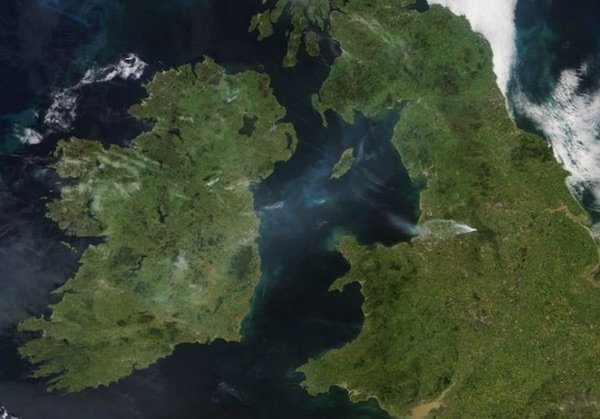
by Jude Collins (judecollins.com)
Are the DUP right when they say that a border in the Irish Sea is a serious threat to the union of Great Britain and Northern Ireland? They believe passionately that it is, and that an Irish Sea border will mean they are grouped more and more with the rest of Ireland rather than the rest of the UK. Their line of thought says that way lies Irish reunification, up with which they will not put.
Non-DUPers argue differently and point out that this is an economic question, not a politicial one. Because the trading relations are different between Finchley and Fermanagh does not mean that Britain is about to cut the umbilical cord that links it with our stateen.
So who’s right?
Well, historical parallels can sometime help. In the first half of the nineteenth century, Germany was a collection of independent states.In 1834 under the guidance of Prussia, a ‘zolllverein’ or customs union was established between most of these states. By 1871 Germany came into being as a single state.
Many historians argue that the zollverein was the foundation on which Germany was built: first economic unity, then political unity. Other historians say not so, that the zollverein increased the sense of independence among its members. The fact remains that Germany first became an economic unit and then a political unit.
In a further complication, the EU makes little bones about its intention to aim at ever greater integration, and is currently spending big money on PESCO, which effectively aims to produce an EU army.
However, the Good Friday Agreement made it clear that only when the majority of people here in our northern stateen agree to severing the union with Britain and the reunification of Ireland, will there be any constitutional change. And remember, the south has to agree by a border poll also for reunification to happen. So however much economic unity there may be in Ireland, the fact remains that constitutional change can come about only when both north and south vote for it.
And this is where the DUP should be focusing its energies, not on economic changes. The fact is that the Catholic population here is increasing and the Protestant population is decreasing. Very soon – within the next five years certainly – there will be a Catholic majority. And since, with some notable exceptions, those from a Catholic background are nationalists/republicans and those from a Protestant background are unionists, it’s highly likely that very soon there will be a majority political will for a reunited Ireland.
It is this fact that has spooked the DUP. It happens: you fear you’re going to lose your job, so you come home and next thing you’re raising blue murder because your partner cracks open his/her boiled egg at the pointy end. The DUP can hear the gurgle and swoosh of an incoming demographic wave which they fear will drown them, and so they get very, very cross at Boris’s double-cross.
Are the DUP and unionism generally doomed? No. There is a way for them to defuse this demographic time-bomb. Peter Robinson spotted it some years back, but didn’t follow up on it. The only way the DUP can maintain the union (short of violence, and even that option looks very dubious as a solution) is by persuading Catholics that our stateen is a pleasant and fulfilling place to live.
Has the DUP followed this line? Emphatically no. In a state of spookery, they have lashed out at what they consider their enemies rather than fellow-countrymen and women. In short, they have double-locked and nailed closed the one door which could have rescued them from this crisis.
But be fair: an economic border in the Irish Sea may not be the break-up of the union; but nationalists and republicans are wrong to mock or dismiss such fears. Instead they should be working at reconciliation with the people they hope to have as fellow-citizens in a new Ireland.
![[Irish Republican News]](https://republican-news.org/graphics/title_gifs/rn.gif)
![[Irish Republican News]](https://republican-news.org/graphics/title_gifs/harp.gif)

